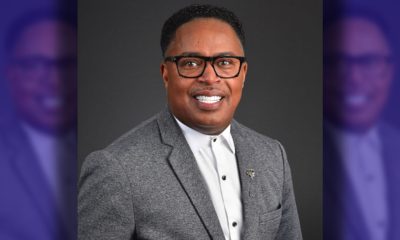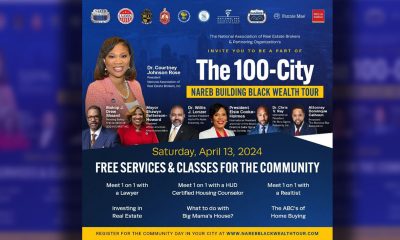Business
PRESS ROOM: Famous Amos Launches Ingredients for Success Initiative to Support Black Entrepreneurs
NNPA NEWSWIRE — According to a recent story by CNBC, there are about 2.6 million Black-owned businesses in the United States, equating to approximately 9.5 percent of all businesses. Yet nearly 8 out of 10 Black-owned companies usually do not survive the first 18 months. Famous Amos strongly believes that pairing these entrepreneurs early on with financial resources and mentorship is a key ingredient to contribute to a more positive direction.
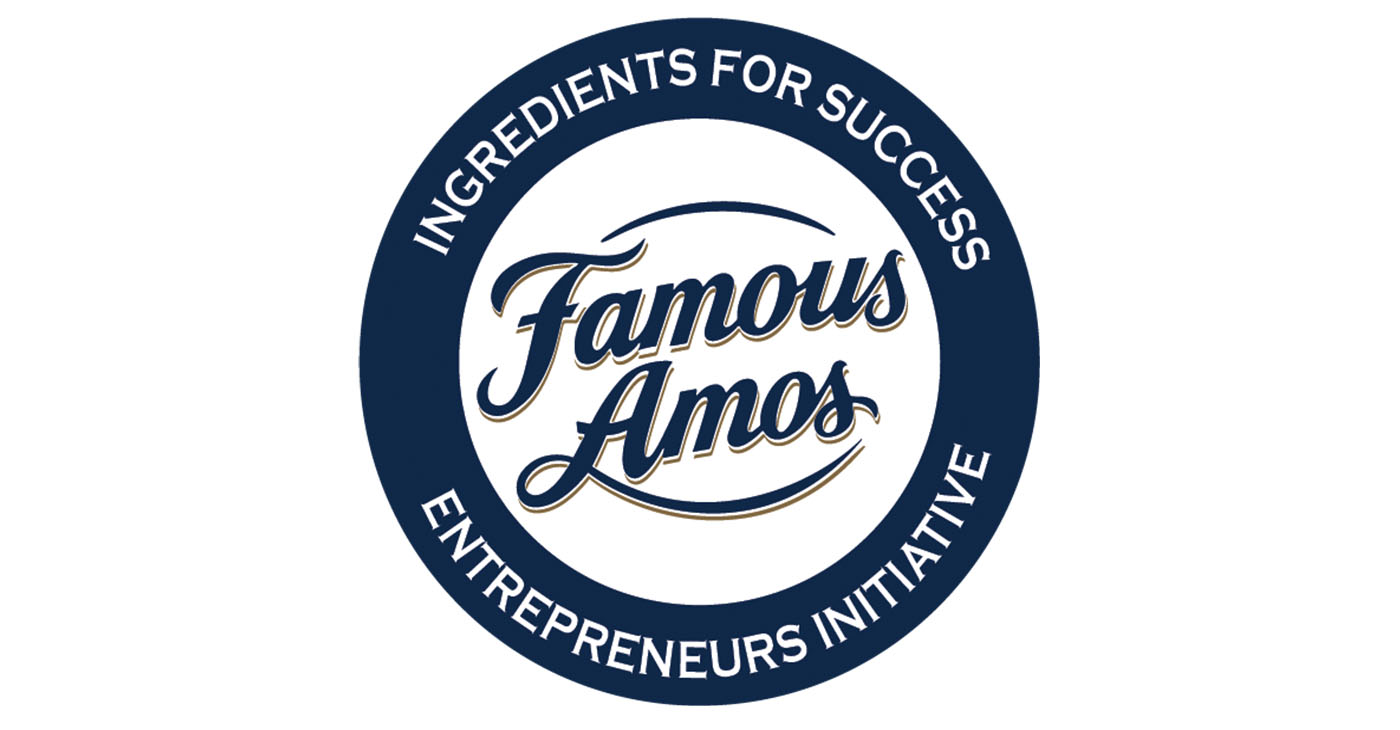
Grant and Mentorship Program to award $150,000 to three selected businesses
CHICAGO, — Famous Amos, in partnership with the National Black Chamber of Commerce (NBCC), announces the launch of its Ingredients for Success Initiative, a grant and mentorship program that aims to provide the necessary tools and resources to help Black business owners succeed.
According to a recent story by CNBC, there are about 2.6 million Black-owned businesses in the United States, equating to approximately 9.5 percent of all businesses. Yet nearly 8 out of 10 Black-owned companies usually do not survive the first 18 months. Famous Amos strongly believes that pairing these entrepreneurs early on with financial resources and mentorship is a key ingredient to contribute to a more positive direction.
“In honor of Wally Amos, the founder of Famous Amos, we are extremely grateful to partner with the NBCC to help create pathways for Black business owners to thrive,” said Rachna Patel, Senior Director, Distinctive Brands at Ferrara. “Famous Amos remains committed to fostering racial equity through the work that we do as a company and our connection to the communities we serve.”
In its inaugural year, a total of $150,000 has been committed to award three Black-owned businesses, each receiving a $50,000 business grant. Along with the monetary award, grant winners will receive a complete suite of mentoring and coaching resources and tools provided by the NBCC to help drive sustainable growth and success.
“Our mission is the economic empowerment of Black businesses and communities,” said Charles H. DeBow, III, Executive Director, National Black Chamber of Commerce. “We are pleased to partner with Famous Amos to provide mentorship, as well as the necessary tools and resources to the grant recipients to assist them to not only participate but to succeed in America’s economy.”
Grant applications will be judged by some of the nation’s foremost Black business leaders including Jeffery Beckham Jr., Chief Executive Officer at Chicago Scholars; Roby Mercharles, vice president of partnerships at The American Dream Fund & Marketplace; Steve Canal, co-founder of Flourysh, ONE Venture Group, Saint Miles and The Baptist Collection; and Mandy Bowman, and founder and CEO of Official Black Wall Street.
Businesses must be at minimum 90 percent Black-owned and have been in operation for five years or less. For official rules and eligibility requirements, and to apply now, please visit https://famousamosingredientsforsuccess.info/. All entries must be submitted by Monday, November 29th, by 11:59 p.m. EST.
About Famous Amos
The Famous Amos story began in 1975 at a bakery on Sunset Boulevard in Hollywood, California. Inspired by a family recipe, the founder Wally Amos perfected the ultimate chocolate chip cookie. He used only the best ingredients to make his bite-size cookies. This delicious homemade signature helped them gain fame just by word of mouth. From there, the Famous Amos story becomes a Hollywood success story. Iconic musicians and other Hollywood celebrities began singing the praises of delicious tiny cookies from the small bakery on Sunset.
This was just the beginning of the Famous Amos story. It was always a core belief of Wally Amos that you make a tastier cookie if you use high-quality ingredients. While this has never changed, what customers looked for in a cookie did. They wanted fewer ingredients and internationally inspired recipes. So, we set out to find the ingredients from the most renowned places in the world and bring the bite-size cookies back to once again being Famous. That brings us to today, and we hope you enjoy our new Famous Amos Wonder From The World™.
About Ferrara:
Ferrara, a company, related to The Ferrero Group, is an emerging powerhouse in the North American confections and sweet snacking categories. A passionate team of more than 6,000 employees works together to share delight in every bite through leading brands that have shaped the industry for more than 100 years. Our diverse portfolio of nearly 35 brands includes SweeTARTS®, Trolli®, BRACH’S®, Black Forest®, and NERDS®, along with iconic favorites like Lemonhead®, Red Hots® and Now and Later®. Ferrara also manages the Keebler® and Famous Amos® businesses for The Ferrero Group. Headquartered in Chicago, Ferrara has an operational network of 20 locations in North America that includes manufacturing, distribution, and R&D facilities. Learn more at www.ferrarausa.com.
National Black Chamber of Commerce (NBCC):
The NBCC is a nonprofit, nonpartisan, nonsectarian organization dedicated to the economic empowerment of African American communities. 140 affiliated chapters are locally based throughout the nation as well as international affiliate chapters based in Bahamas, Brazil, Colombia, Ghana, Kenya, France, Botswana, Cameroon, and Jamaica and businesses as well as individuals who may have chosen to be direct members with the national office. In essence, the NBCC is on the leading edge of educating and training Black communities on the need to participate vigorously in this great capitalistic society known as America.
The NBCC reaches 100,000 Black-owned businesses. There are 2.6 million Black-owned businesses in the United States. Black businesses account for over $138 billion in revenue each year, according to the US Bureau of Census. The National Black Chamber of Commerce® is dedicated to economically empowering and sustaining African American communities through entrepreneurship and capitalistic activity within the United States.
Bay Area
Mayor Breed Proposes Waiving City Fees for Night Markets, Block Parties, Farmers’ Markets, Other Outdoor Community Events
Mayor London N. Breed introduced legislation on April 26 to encourage and expand outdoor community events. The first will waive City fees for certain events, making them less costly to produce. The second will simplify the health permitting for special event food vendors through the creation of an annual permit. Both pieces of legislation are part of the Mayor’s broader initiative to bring vibrancy and entertainment to San Francisco’s public right of ways and spaces.

Mayor’s Press Office
Mayor London N. Breed introduced legislation on April 26 to encourage and expand outdoor community events.
The first will waive City fees for certain events, making them less costly to produce. The second will simplify the health permitting for special event food vendors through the creation of an annual permit. Both pieces of legislation are part of the Mayor’s broader initiative to bring vibrancy and entertainment to San Francisco’s public right of ways and spaces.
Outdoor community events are integral to San Francisco’s vibrant culture and sense of community. These events include night markets, neighborhood block parties and farmers markets, and bolster the City’s economy by supporting local businesses and attracting tourists eager to experience San Francisco’s unique charm and food scene.
They offer residents, workers and visitors, opportunities to engage with local artists, musicians, and food vendors while enjoying the San Francisco’s stunning outdoor spaces and commercial corridors.
The legislation will allow for more and new community gatherings and for local food vendors to benefit from the City’s revitalization.
“San Francisco is alive when our streets are filled with festivals, markets, and community events,” said Breed. “As a city we can cut fees and streamline rules so our communities can bring joy and excitement into our streets and help revitalize San Francisco.”
Fee Waiver Legislation
The events that can take advantage of the new fee waivers are those that are free and open to the public, occupy three or fewer city blocks, take place between 8 a.m. and 10 p.m., and have the appropriate permitting from the ISCOTT and the Entertainment Commission.
The applicant must be a San Francisco based non-profit, small business, Community Benefit District, Business Improvement District, or a neighborhood or merchant association. Fees eligible for waiver include any application, permit, and inspection/staffing fees from San Francisco Municipal Transportation Agency, Department of Public Health, Fire Department, Entertainment Commission, and Police Department.
Currently, it can cost roughly anywhere between $500-$10,000 to obtain permits for organized events or fairs, depending on its size and scope. Organizations and businesses are limited to a maximum of 12 events in one calendar year for which they can receive these fee waivers.
Food Vendor Streamlining Legislation
The second piece of legislation introduced will help special event food vendors easily participate in multiple events throughout the year with a new, cost-effective annual food permit. Food vendors who participate in multiple events at multiple locations throughout the year will no longer need to obtain a separate permit for each event. Instead, special event food vendors will be able to apply and pay for a single annual permit all at once.
“Many successful food businesses either begin as pop-up vendors or participate in special events to grow their business,” says Katy Tang, Director of the Office of Small Business. “Giving them the option for an annual special event food permit saves them time and money.”
Currently, food vendors are required to get a Temporary Food Facility (TFF) permit from the Department of Public Health (DPH) in order to participate in a special event, among permits from other departments.
Currently, each special event requires a new permit from DPH ranging from $124-$244, depending on the type of food being prepared and sold. Last year, DPH issued over 1,500 individual TFF permits. With the new annual permit, food vendors selling at more than four to six events each year will benefit from hundreds of dollars in savings and time saved from fewer bureaucratic processes.
“This legislation is a step in the right direction to make it easier for food vendors like me to participate in citywide events,” said Dontaye Ball, owner of Gumbo Social. “It saves on time, money and makes it more effective. It also creates a level of equity.”
Bay Area
Faces Around the Bay: Sidney Carey
Sidney Carey was born in Dallas, Texas. He moved with his family to West Oakland as a baby. His sister is deceased; one brother lives in Oakland. Carey was the Choir Director at Trinity Missionary Baptist Church for 18 years.
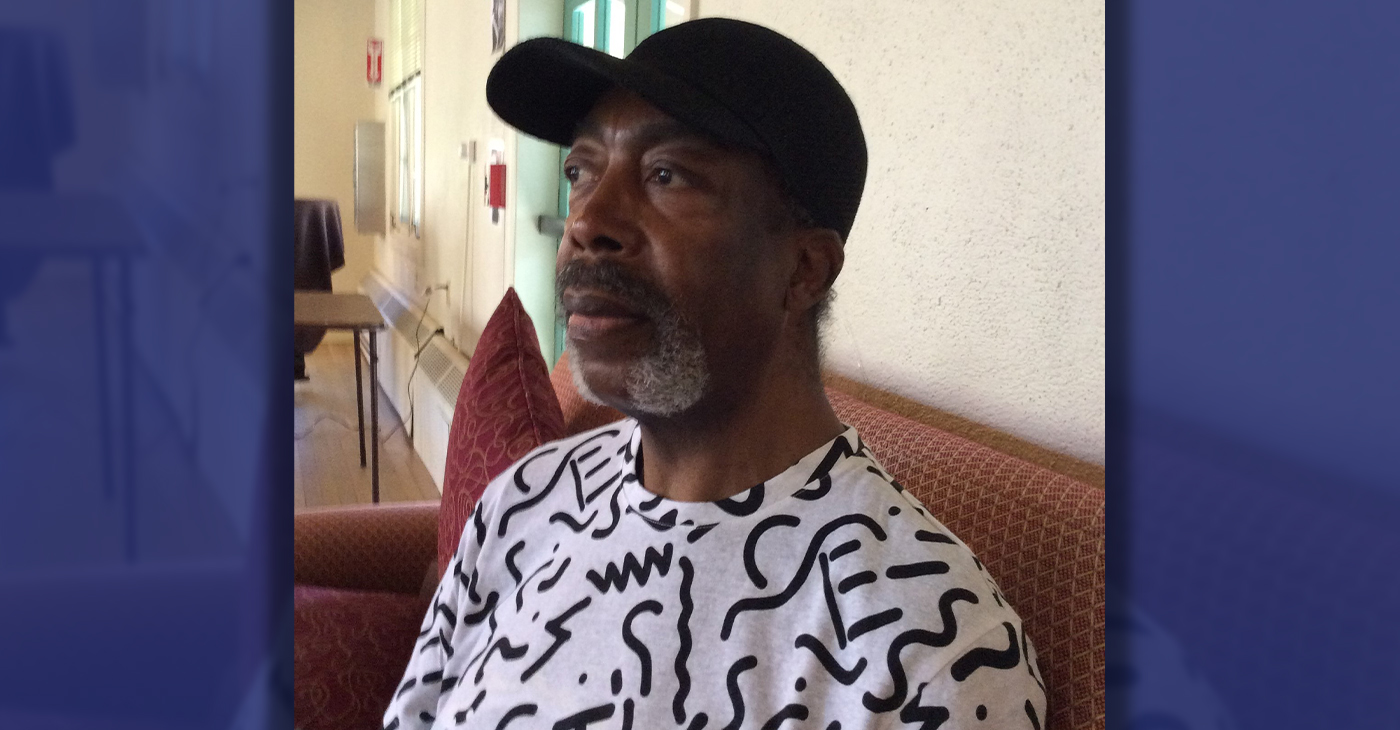
By Barbara Fluhrer
Sidney Carey was born in Dallas, Texas. He moved with his family to West Oakland as a baby. His sister is deceased; one brother lives in Oakland.
Carey was the Choir Director at Trinity Missionary Baptist Church for 18 years.
He graduated from McClymonds High with a scholarship in cosmetology and was the first African American to complete a nine-month course at the first Black Beauty School in Oakland: Charm Beauty College.
He earned his License, and then attended U.C., earning a secondary teaching credential. With his Instructors License, he went on to teach at Laney College, San Mateo College, Skyline and Universal Beauty College in Pinole, among others.
Carey was the first African American hair stylist at Joseph and I. Magnin department store in Oakland and in San Francisco, where he managed the hair stylist department, Shear Heaven.
In 2009, he quit teaching and was diagnosed with Congestive Heart Failure. He was 60 and “too old for a heart transplant”. His doctors at California Pacific Medical Center (CPMC) went to court and fought successfully for his right to receive a transplant. One day, he received a call from CPMC, “Be here in one hour.” He underwent a transplant with a heart from a 25-year- old man in Vienna, Austria
Two years later, Carey resumed teaching at Laney College, finally retiring in 2012.
Now, he’s slowed down and comfortable in a Senior Residence in Berkeley, but still manages to fit his 6/4” frame in his 2002 Toyota and drive to family gatherings in Oakland and San Leandro and an occasional Four Seasons Arts concert.
He does his own shopping and cooking and uses Para Transit to keep constant doctor appointments while keeping up with anti-rejection meds. He often travels with doctors as a model of a successful heart-transplant plant recipient: 14 years.
Carey says, “I’m blessed” and, to the youth, “Don’t give up on your dreams!”
Business
Maximizing Your Bank Branch Experience
In a world of online tools that let you make banking transactions with the touch of a button, the idea of visiting a branch might seem unnecessary. However, if you haven’t visited your local branch recently, you might be surprised by what it has to offer. Your branch is much more than a place to deposit and withdraw money – it can offer the opportunity to build valuable relationships with people who can help you achieve financial independence.
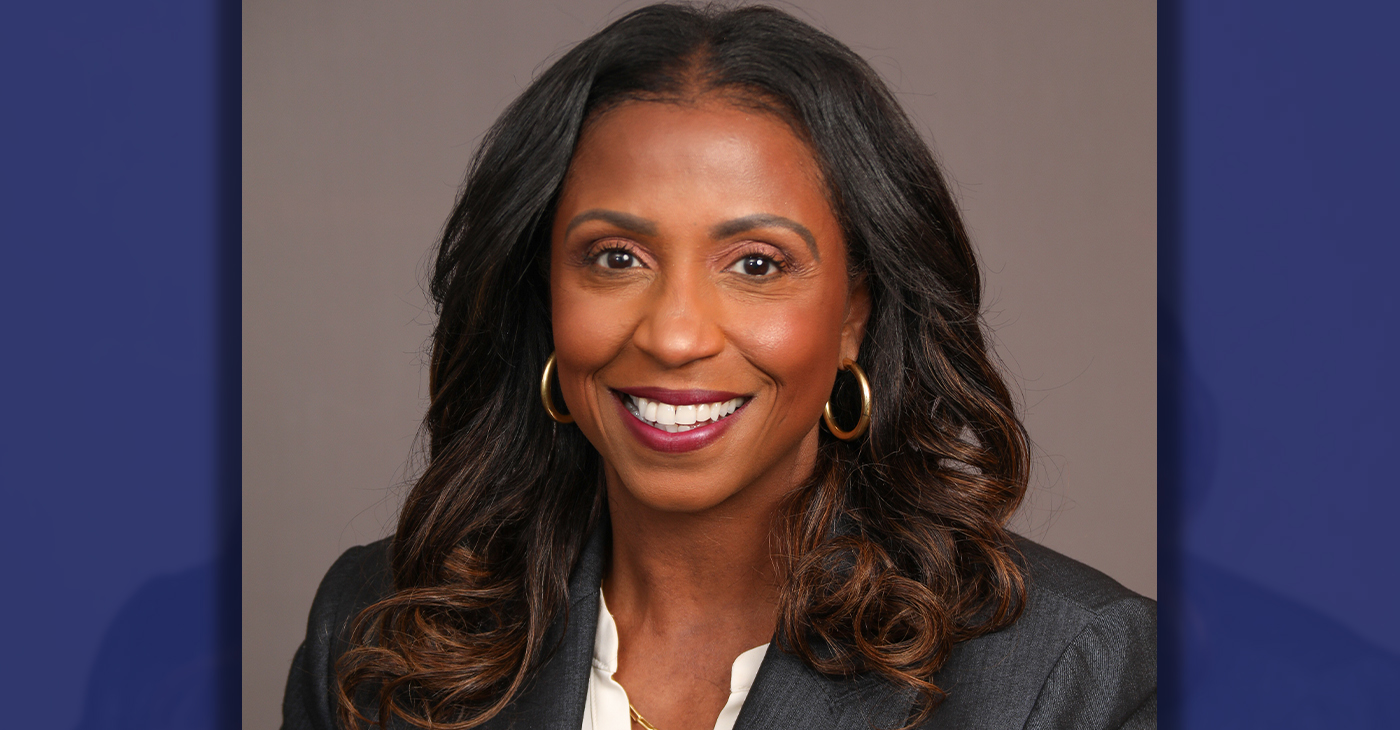
Sponsored by JPMorgan Chase & Co.
In a world of online tools that let you make banking transactions with the touch of a button, the idea of visiting a branch might seem unnecessary.
However, if you haven’t visited your local branch recently, you might be surprised by what it has to offer. Your branch is much more than a place to deposit and withdraw money – it can offer the opportunity to build valuable relationships with people who can help you achieve financial independence.
Diedra Porché, Head of Community and Business Development at Chase, talks about how the bank model has evolved to maximize the branch experience for customers; how connecting with your local branch team can help you think differently about money and investing for your future.
How can a customer feel connected to a bank branch?
I love that question because we ask ourselves the same thing every day. Being part of the community means meeting with local leaders to find out what they need from us and then designing our branches around that. For example, at some of our community branches we have what we call a living room where we can host financial workshops, small business pop-up shops or nonprofit organization meetings. We also hire locally. You feel much more connected talking about financial aspirations with people from your community who went to the same high school, place of worship or maybe frequented the same recreation center down the street when they grew up.
How can I build a relationship with my bank?
Customers should feel comfortable sharing their goals, needs and wants with their banker. Also, it helps to remember the Community Manager is there to help solve your finance challenges and build a roadmap for success. You might have a short-term or long-term goal to open a business, build your credit, become debt-free, buy a home, or save for retirement, and our community team can help. At Chase, we strive to make dreams possible for everyone, everywhere, every day. Your financial future starts with building those relationships.
How can customers change negative perceptions they have about managing their money?
Far too often, customers are intimidated when they visit a bank. Our goal is to demystify banking and money myths empowering people to make the right decisions. For example, a big myth is assuming you need a lot of money to have a bank account. You don’t! Another myth is you need to carry a balance on your credit card to build credit — actively using your credit card can demonstrate that you can use credit responsibly but carrying a balance won’t necessarily improve your credit score. Finally, understanding mobile and online banking safety is key. There are so many safeguards and protections in place to guard your personal information and funds.
What’s an easy step one can take to shift their financial behavior right now?
Cultivating self-awareness is a good first step. Start by taking inventory of your spending. Be honest with yourself about what you need and what you want. Too often, people confuse the two, which leads to bad decisions. Rent is something you need to pay. An extra pair of shoes is something you may want but before you buy them ask yourself if that’s the best use of your hard-earned money. Too often, our beliefs and our fears shape our financial realities. If any of those beliefs are limiting your financial behavior, it’s important to question and examine them, and then decide you’re open to learning something different.
What’s one perception about banking that you’d like to change?
I think folks are surprised there are so many resources available and accessible both at our branches and online, it’s always a good idea to visit a nearby branch and speak to a Community Manager or banker. Outside of what we offer in-branch, our teams also work with local neighborhood partners who provide a variety of services to support the community, businesses and residents. I received a unique piece of feedback from an employee who started with the bank and had lived in the same community his whole life. When he visited his local community branch, he said, “Diedra, when I walked in, I felt dignified.” Every time I recount that story, it warms my heart because that’s what we want — we want our centers to belong to the community.
-

 Community3 weeks ago
Community3 weeks agoFinancial Assistance Bill for Descendants of Enslaved Persons to Help Them Purchase, Own, or Maintain a Home
-

 Business3 weeks ago
Business3 weeks agoV.P. Kamala Harris: Americans With Criminal Records Will Soon Be Eligible for SBA Loans
-

 Activism3 weeks ago
Activism3 weeks agoOakland Post: Week of April 10 – 16, 2024
-

 Community3 weeks ago
Community3 weeks agoAG Bonta Says Oakland School Leaders Should Comply with State Laws to Avoid ‘Disparate Harm’ When Closing or Merging Schools
-

 Community2 weeks ago
Community2 weeks agoRichmond Nonprofit Helps Ex-Felons Get Back on Their Feet
-

 Community2 weeks ago
Community2 weeks agoOakland WNBA Player to be Inducted Into Hall of Fame
-

 Community2 weeks ago
Community2 weeks agoRPAL to Rename Technology Center for Retired Police Captain Arthur Lee Johnson
-

 Activism1 week ago
Activism1 week agoOakland Post: Week of April 24 – 30, 2024









